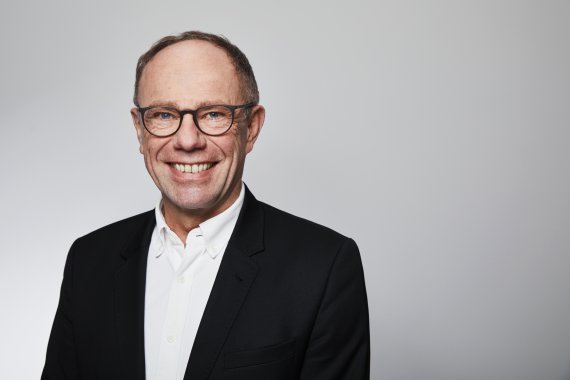
At the end of November, the Federation of the European Sporting Goods Industry (FESI) elected Frank Dassler as its new president. Over the next two years, the grandchild of Puma founder Rudolf Dassler will manage the fortunes of the biggest European advocacy groups of the sporting goods industry.
The FESI consists of 1800 companies with 640,000 employees, an SME concentration of 75 percent and a turnover of 66 billion euros in Europe alone.
In an interview with ISPO.com, Dassler explains how he wants to make the sport industry’s voice heard even more in his second term as FESI president and how traders and the end customer will benefit from this in the end.
ISPO.com: Congratulations, Mr. Dassler, on your election as the president of the Federation of the European Sporting Goods Industry. What motivated you to fill up your already-busy schedule even more with this office that is so important for the sporting goods industry?
Frank Dassler: I’ve been if whether I’m prepared to bring my experience as a former FESI president with me to help in the restructuring process, something I’m more than happy to do for our industry. The work of the FESI is too important for the European sporting goods industry ֪– we must take care of it. We can’t leave it to an association that doesn’t understand the intricacies of our industry.
Decisive markers were laid down at the FESI’s general assembly. Tell us: What is the mood like in the industry?
As a board, we prepared intensively for the general assembly and presented the new strategy there. At the same time, it was important for me that not only the board confirmed my presidency, a necessary part of the constitution, but also that all members have a say in the decision-making process. The mood was correspondingly positive – we reached unanimous decisions for all points of discussion. The members back our plan and strategy.
Every new boss enters office with their own expectations and ideas. What do you want to change within the FESI in comparison to your predecessors – what are the most important milestones that you have in your sights?
As a board, we felt the most important thing was to equip the association with a young management team, something we’ve found with Jérôme Pero and Youri Mercier. For me personally, transparency in communication is the most important thing – we want to represent every member, be they a big brand or a small company, and represent their interests to the best of our ability.
Michael Nendwich, managing president of FEDAS, the Federation of European Sporting Goods Retailers, was also a guest at the general assembly. You agreed on closer collaboration – what is this expected to look like?
We’ve worked together as friends with the FEDAS for many years and we are also making a space available for them in our “House of Sports,” which is based in Brussels. In addition, Michael Nendwich is also a board member of the FESI as a representative of the Austrian Sporting Goods Association. I find his ideas on optimizing apprenticeships within our industry to be very exciting – we want to do that together.
A European platform for the sporting goods industry has also been discussed – how can an individual company picture that? What will it mean for retailers? And how will the end consumer benefit from it in the end?
Our main task in Brussels is the proactive representation of our specific interests. Within the EU free trade contract with Vietnam, we have managed, for example, to highlight the sustainability aspects for this aspiring emerging economy, which are inherent to our industry right now. As a result, this means increased savings in procurement.
The same goes for EU research projects that we want to let our members take part in, but also for the reduction of bureaucracy or excessive labelling rules. We want to see our particular agenda recognized in EU legislation, which doesn’t exclude free trade and sustainability, but focuses a lot more on the needs of the end consumer.
The FESI has tasked itself with further entrenching sports into the population. How do you specifically aim to tackle this as the new president?
I began that already during my earlier time in office between 2010 and 2013 when we introduced the Week of Sport with the EU Commission, which regularly organizes events in September to promote sports and physical activity. Sport clubs, cities, health insurance companies, and our member brands very successfully take part in different ways pertaining to the initiative. Now it’s all about expanding, in order to highlight the advantages of physical exercise for one’s health.
After all, every euro invested in sports is a healthy euro – that’s what my father, Armin Dassler, said over 30 years ago, only for the Deutsche Mark back then.

As the boss of an interest group, you are an important lobbyist in the direction of societal powers. In which direction does the lobbying work still need to be expanded, in your view?
The FESI is already in talks with all significant stakeholders today. In the future, a key issue within this dialog will be digitization. It will define the business model of the member companies much more than today, and therefore will also define the lobbying issues. At the same time, digitization is already shaping the development of political opinions and is therefore also demanding associations to conduct dialog with its stakeholders digitally.
In your opinion, does the sporting goods industry feel understood by the political decision makers? In which fields do you still have work to do in order to convince people?
A clear aim for us is to make decision makers in Brussels aware of all the relevant information about our industry, our challenges, and our achievements. The FESI team performs really good work here through its broad networking.
You were also president of the WFSGI until February 2017, and still work there as a representative for Europe and Africa. As the new president of the FESI, do you also stand for bringing the different associations more closely together – or is there a need to separate these offices?
The offices and the identities of the associations are already different based on their geographical focus alone; we want to intensify the collaboration more and more. We have formed working groups with that in mind, which will focus solely on this. For example, we formed a joint panel of experts two years ago, who are successfully involved in the EU legal proposals on the use of internet platforms and our selective sales systems.
For your “main job,” you are the Chief Legal Counsel of adidas. How much do one-two passes between the association and the company help there – or how difficult is it to separate them from one another?
Whether as an adidas representative or as the FESI president, I know we’re most likely to be heard if the industry speaks with one voice. Of course, we have a good understanding in our industry of what binds us and what divides us. We bring the binding factors to the FESI as a shared interest; we each tackle our own dividing factors alone.
The digital transformation is also changing sports business more and more. What does that mean for your association – and the members, the companies?
There used to be the saying, “Advertise or say your bye-byes.” The same goes for digitization. People don’t use a landline telephone at home anymore, but instead tend to own a smartphone. That doesn’t just apply to rich, western states, but for all the world’s population. If you want to reach out to them, you have to become digital, preferably right from the product development stage. It will significantly define the business models – and with that, our lobbying issues as well.
At the FESI, we will also push digitization more strongly internally. Our website is up to date from a technical point of view, but the content and the specific contact details of the members and stakeholders definitely need to be improved.
In your opinion, how are the sporting goods industry and retail positioned regarding digital business? What does the future of the specialist retailer look like, in your opinion?
Like everywhere, there are favorable examples and less favorable ones. In general, we’ve all taken too long to position ourselves well digitally, especially if you consider that over 15 years ago at industry events such as the ISPO Munich, we were discussing the opportunities and risk presented by the Internet. Specialty retail has the opportunity like nobody else to combine the analog, haptic world of experience with the digital.
Just like Amazon is now moving into malls with brick and mortar stores, so must our specialist retail also conquer the digital world for itself in order to create a more seamless buying experience for the consumer. At the end of the day, we – manufacturers, brands, and retailers – must direct ourselves towards the end consumer and their purchasing habits.
A general question: How does the sports industry need to be positioned in the future to better understand and reach the customer?
In the future, sporting goods need to give more than what they promise. For us as an industry, that means that we need to be as close as possible to consumers to understand and address their needs. Digitization helps with that.
From a corporative viewpoint, the expectations for responsible company management will continue to increase. Even if the sporting goods industry is further ahead here than other industries, we can still achieve even more with the FESI.
- Awards
- Mountain sports
- Bike
- Fitness
- Health
- ISPO Munich
- Running
- Brands
- Sustainability
- Olympia
- OutDoor
- Promotion
- Sports Business
- Textrends
- Triathlon
- Water sports
- Winter sports
- eSports
- SportsTech
- OutDoor by ISPO
- Heroes
- Transformation
- Sport Fashion
- Urban Culture
- Challenges of a CEO
- Trade fairs
- Sports
- Find the Balance
- Product reviews
- Newsletter Exclusive Area
- Magazine








